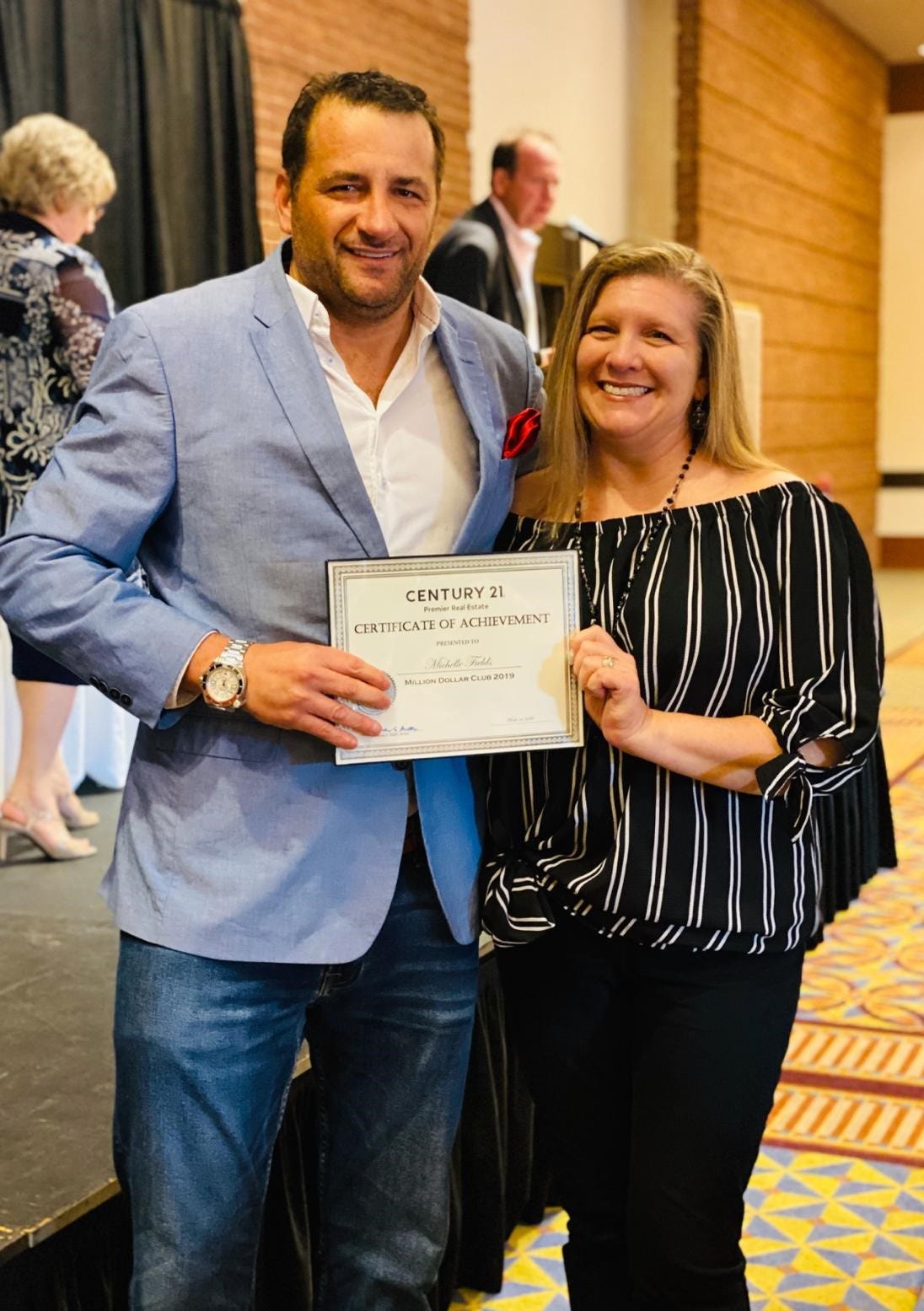Navigating Real Estate: Alex Rozwadowski on Mistakes to Avoid
Avoiding Common Pitfalls in Real Estate
Over the years with CENTURY 21 Premier Real Estate, I’ve had the privilege to help many clients find their dream homes and to work with a dedicated team that has achieved great recognition, including the prestigious Double Centurion Award.
With all this experience, I’ve seen firsthand the common missteps agents often make—and I’d like to share some honest insights on how to avoid them.
I’ll tell you about four common mistakes in our industry: overpricing properties, saying no to technology, a lack of communication with clients, and ignoring the benefits of specializing.
Overpricing a Property
One of the most frequent missteps I see among agents is the temptation to overprice a property. Many new agents believe that setting a high price will leave room for negotiation or impress sellers, but the truth is that overpricing usually drives potential buyers away.
In my early years, I encountered situations where a home sat on the market for far too long simply because its price wasn’t aligned with market expectations. Remember this, as it may be the best advice I can give you: “The client doesn’t set the price; the market dictates the price.”
Why It’s a Problem:
Reduced Buyer Interest: Buyers often compare multiple listings, and if a property’s price seems out of line with similar homes, it may be skipped.
Market Stagnation: A property that lingers unsold creates a negative impression, which can hurt the seller’s overall market value.
Erosion of Trust: Overpricing can damage your reputation if clients feel you didn’t provide realistic guidance.
What to Do Instead:
Rely on Data: Start with a thorough Comparative Market Analysis (CMA). Look at recent sales in the neighborhood, understand current trends, and set expectations accordingly.
Educate Your Client: Explain that the client isn’t the only decision-maker when it comes to pricing—the market is. Be honest and transparent. This approach builds trust and helps them understand that a realistic price can lead to a faster sale.
Stay Flexible: If the market is showing signs of a slowdown, be prepared to adjust the price over time. Regularly review the data and update your strategy as needed.
In my experience, pricing a property accurately from the start not only speeds up the sale but also helps maintain the property’s perceived value. This honesty and realism have helped me build long-lasting relationships with clients.
Saying No to Technology
When I entered this field, technology was nothing like it is today. There was a time when face-to-face interactions and traditional marketing were the only tools in our arsenal. Now, the landscape has drastically changed.
Unfortunately, some agents still shy away from embracing modern tech tools, and by doing so, they miss out on opportunities to enhance efficiency and reach a wider audience.
Why It’s a Problem:
Inefficiency: Relying only on outdated methods can slow down your processes, from listing a property to following up with leads.
Lost Opportunities: Technology can give you access to data and insights that help you understand buyer behavior, target your marketing, and streamline transactions.
Client Expectations: Today’s clients expect to see digital tours, interactive floor plans, and rapid responses through social media or email.
What to Do Instead:
Embrace Digital Marketing: Use social media, email campaigns, and even video tours to showcase your listings. A virtual tour or a drone video can really capture the essence of a property and attract more potential buyers.
Invest in Tools: Platforms like CRM systems, data analytics tools, and specialized real estate apps can make your work more effective. They help you manage contacts, track market trends, and stay organized.
Stay Curious: Make it a habit to explore new technologies and see how they can add value to your work. I often set aside time to attend webinars or participate in tech-focused conferences to keep up with the latest developments.
I remember when I first started using digital tools at CENTURY 21 Premier Real Estate—the improvement in efficiency and client engagement was remarkable.
Embracing technology doesn’t mean you lose the personal touch; it means you’re working smarter and being more responsive to your clients’ needs.
Lack of Communication with Clients
Clear communication is the backbone of our profession, yet it’s one area where many agents fall short. In the hustle of closing deals and managing listings, maintaining regular, transparent communication can sometimes take a backseat.
Over the years, I have seen that failure to communicate can lead to misunderstandings, lost opportunities, and, most importantly, frustrated clients.
Why It’s a Problem:
Client Dissatisfaction: When clients are left in the dark about the process, they can become anxious and lose trust in you.
Missed Feedback: Without proper communication, you might miss key insights from your clients that could help tailor your approach.
Reduced Referrals: A satisfied client is more likely to refer you to others, but if they feel uninformed, their likelihood to recommend your services drops.
What to Do Instead:
Regular Updates: Make it a point to keep your clients informed at every step, whether it’s about new listings, offers, or changes in the market. Even a brief email can make a big difference.
Be Available: Create channels where clients can reach you quickly and easily. Whether it’s through phone, text, or email, being accessible builds trust.
Practice Active Listening: Pay close attention to your clients’ needs, concerns, and feedback. Sometimes, a simple conversation can resolve potential issues before they escalate.
Use Technology to Your Advantage: Utilize tools like CRM systems to set reminders and schedule regular updates. Digital calendars and automated alerts can help ensure that no client is ever forgotten.
In my own practice, clear and honest communication has always been a top priority. When I make it a point to listen and respond in a timely manner, I build stronger relationships and create an environment where clients feel genuinely supported throughout the home-buying or selling process. I share a bit of my story and let the client share theirs; the more you learn about them, the easier it is to help them make the right choice.
Ignoring the Power of Specializing
Many real estate agents try to be all things to all people, thinking that a broad approach will yield more opportunities. However, I’ve found that specializing in a particular niche can really make a difference.
Whether it’s luxury properties, first-time buyers, or a specific neighborhood like those in Columbus, Georgia, having a focus can help you become known as the go-to expert in that area.
Why It’s a Problem:
Lack of Identity: Without a specialization, it becomes harder for clients to know what you stand for and where your true expertise lies.
Increased Competition: When you try to cover everything, you often end up competing with agents who have deep knowledge in specific areas.
Missed Opportunities for Growth: Specializing allows you to tailor your marketing efforts, hone your skills, and build a reputation that attracts a steady stream of targeted clients.
What to Do Instead:
Choose Your Niche: Reflect on what types of properties or clients you enjoy working with the most. It might be a specific neighborhood, a property type, or serving a particular demographic.
Market Your Expertise: Once you decide on your niche, develop your brand around it. Use online platforms, local media, and community events to highlight your specialized knowledge.
Invest in Training: Become an expert in your area by investing in courses, attending seminars, and learning from peers who have carved out similar niches. The more you know, the more confidently you can market your skills.
Tailor Your Approach: Your marketing materials, listings, and client interactions should reflect your specialization. This not only sets you apart but also builds trust with clients seeking an expert.
When I focused on building a niche in Columbus, Georgia, I noticed a significant improvement in how clients perceived my services. They began to see me not just as a general agent but as someone who deeply understood the nuances of the local market and could provide tailored advice that made all the difference.
My Personal Reflections
Throughout my career, I’ve made my share of mistakes and learned valuable lessons along the way. Each phase of my journey taught me something new about the art of real estate, the importance of humility, and the power of teamwork.
I encourage all my fellow agents to take these lessons to heart. Overpricing a home deprives you of potential buyers and leads to delays that can hurt your reputation. Refusing to adopt new technology leaves you lagging behind a rapidly evolving market, while poor communication can damage trust and stifle growth. And choosing to be a generalist instead of focusing on a niche may dilute your efforts, making it harder for clients to recognize your unique value.
Each mistake offers an opportunity for growth. Embrace continuous learning, seek mentorship, listen actively, and focus on a niche where you can truly shine. I hope that sharing my experience helps you see these challenges as opportunities to learn and improve.
I invite you to reflect on these points, apply them in your daily practice, and watch your career—and your team—grow stronger by the day.





